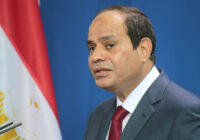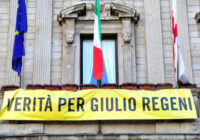Despite the lack of tangible threats to his presidency, the intensification of Sisi’s attacks on news outlets and social media is likely part of his larger effort to consolidate power.
The Egyptian government’s recent crackdown on international news outlets and social media represent President Abdel Fattah el-Sisi’s attempt to consolidate power in light of perceived threats to regime stability. Sisi secured his second term as president of Egypt back in April, winning 97% of the vote, an outcome predicted by most following the elections. While these results were expected, the accompanying social media crackdown took many by surprise.
A number of Egyptian citizens and analysts believe that the elections were a sham. Some point to the fact that only two candidates ran in the elections: the incumbent Sisi and his sole challenger, Moussa Mostafa Moussa, a perceived puppet candidate allegedly instructed to run by Sisi to maintain Egypt’s democratic veneer. While other candidates did attempt to run in earnest, they were disqualified for a variety of reasons. Two former military commanders, Lieutenant General Sami Anan and Colonel Ahmed Konsowa, were arrested after announcing their intentions to run, and two other candidates pulled out of the race citing intimidation and attacks from government-run media.
A week before the elections, Egypt’s chief prosecutor, Nabil Sadek, instructed his staff to take legal action against news outlets deemed to be undermining Egypt’s security, naming them the so-called “forces of evil.” Considering that the country is ranked 161 out of 180 by the World Press Freedom Index, Egyptian citizens are no strangers to censorship, but Sadek’s statement appears to have targeted Western foreign media as well. The Egyptian State Information Service, a government body tasked with overseeing foreign media, recently called for a BBC documentary, The Shadow Over Egypt, to be banned in the country, demonstrating Egypt’s increasingly aggressive stance toward media organizations.
The National Election Authority, a new government entity responsible for managing and supervising the electoral process, released a long list of rules in February that outlines exactly what international journalists can and cannot cover around the election. Some of the more interesting prohibitions for journalists include certain questions for voters, photographs and certain headlines seemingly unrelated to the elections, as well as coverage and observations on the voting process.
Good luck to all Egyptians voting today. You have so many choices.
Here’s a recap:
1) General Sisi
2) General Sisi
3) General Sisi
4) Abdul Rahman..sorry General Sisi
5) General Sisi
6) Prison
7) Death #EgyptElection2018— Naveed (@Seditious_medic) March 26, 2018
In addition to increased restrictions on international media, Egyptian authorities have created a special phone number for concerned citizens to report any media undermining security or spreading “false news.”
Escalating the situation even further, an Egyptian member of parliament who also sits on the Communication and Information Committee, Ahmed Refaat, called for the execution of social media activists, stating that they are “more dangerous than spies.” Statements like this from government officials illustrate the severity of the hostile climate for journalists in Egypt.
Egyptian social media paints a vivid picture of citizens’ feelings about April’s elections. A few trending Arabic language hashtags on Twitter during the elections included #invalid_votes and #one_candidate. These hashtags demonstrate that many Egyptians believe their elections were likely illegitimate. A popular English-language tweet also sums up the feelings of some Egyptians.
Perhaps in response, the Egyptian government announced they were creating a new Facebook-style social media platform. Many Egyptians interpreted this move as a means of further government regulation and censorship of social media. In response, Egyptians took to Twitter, where the hashtag #suggest_a_name_for_Egyptian_Facebook was trending. Egyptians responded with some sarcastic suggestions poking fun at the idea with suggestions like Police Book, Prison Book and Sisi Book, among others.
Despite the lack of tangible threats to his presidency, the intensification of Sisi’s attacks on news outlets and social media is likely part of his larger effort to consolidate power. The Egyptian president has made it very clear that he intends to stay in power for the inevitable future.
*[Young Professionals in Foreign Policy is a partner institution of Fair Observer.]
The views expressed in this article are the author’s own and do not necessarily reflect Fair Observer’s editorial policy.
Photo Credit: Niyazz / Shutterstock.com
Support Fair Observer
We rely on your support for our independence, diversity and quality.
For more than 10 years, Fair Observer has been free, fair and independent. No billionaire owns us, no advertisers control us. We are a reader-supported nonprofit. Unlike many other publications, we keep our content free for readers regardless of where they live or whether they can afford to pay. We have no paywalls and no ads.
In the post-truth era of fake news, echo chambers and filter bubbles, we publish a plurality of perspectives from around the world. Anyone can publish with us, but everyone goes through a rigorous editorial process. So, you get fact-checked, well-reasoned content instead of noise.
We publish 2,500+ voices from 90+ countries. We also conduct education and training programs
on subjects ranging from digital media and journalism to writing and critical thinking. This
doesn’t come cheap. Servers, editors, trainers and web developers cost
money.
Please consider supporting us on a regular basis as a recurring donor or a
sustaining member.
Will you support FO’s journalism?
We rely on your support for our independence, diversity and quality.





